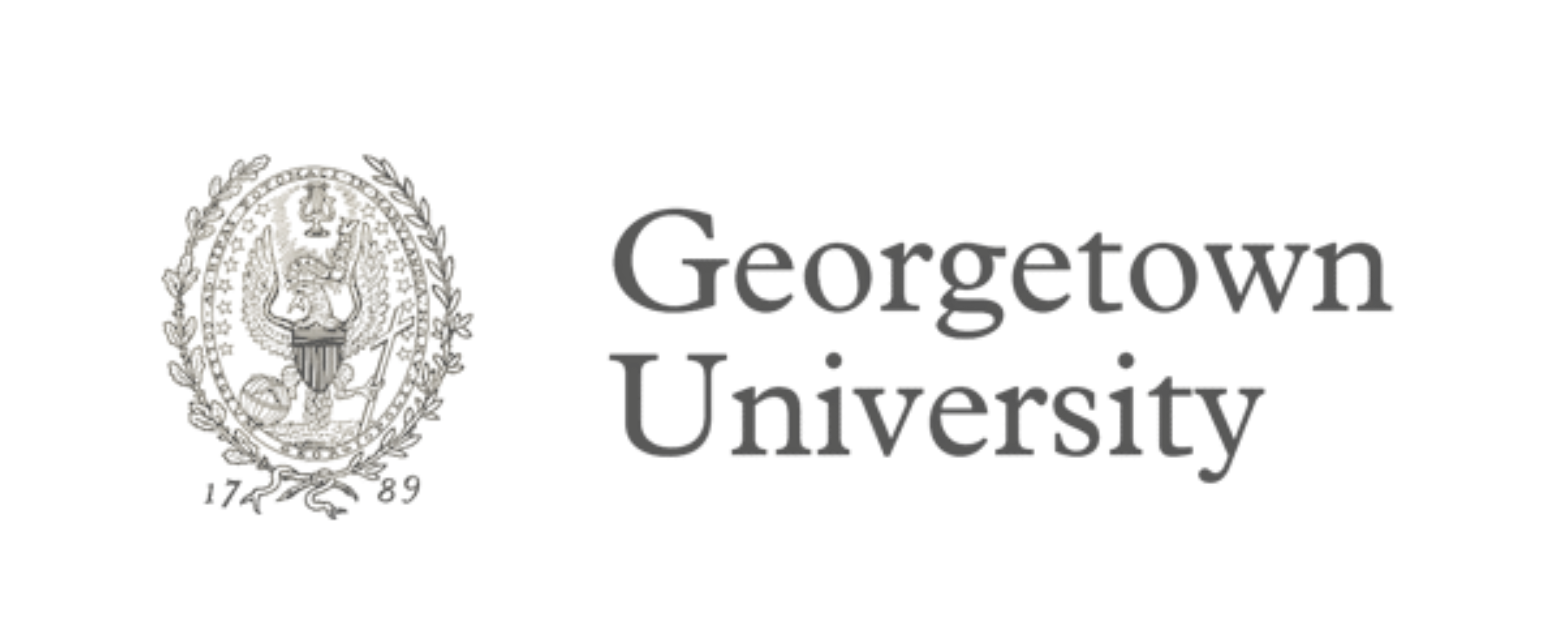Achieve Academic Excellence NOW!
Custom Writing Solutions Designed for Your Success

Average Rating
Google Reviews
Trust Pilot
Reviews.io
What Our Customers are Saying
GradeEssays saved my semester! I was swamped with assignments, and their custom essay service was a lifesaver. The quality of writing was excellent, and the paper was delivered well before my deadline. I’ll definitely be using their service again!
Sarah J.I needed help with my dissertation, and GradeEssays came through with top-notch assistance. My writer was professional and really understood my research topic. The final product was exactly what I needed to move forward. I highly recommend their services!
Emily S.The research paper I ordered was amazing. It was clear, well-organized, and thoroughly researched. The customer support team was also very responsive and kept me updated throughout the process. GradeEssays exceeded my expectations!
Michael T.As a law student, it’s hard to trust anyone with my assignments, but GradeEssays impressed me. They nailed the legal citations and gave me an insightful essay that got me an A. I couldn’t be happier!.
Helena L.I ordered an editing and proofreading service for my nursing paper, and the results were fantastic! My writer made great suggestions and fixed all the grammatical errors. I felt confident submitting my paper after their review.
Dustin C.I was skeptical at first, but GradeEssays blew me away with their service! My essay on a complex engineering topic was spot-on and well-researched. The writer clearly knew their stuff, and I received it ahead of schedule. Highly recommended!
Olivia P.Trusted By Students From Top Universities Across the World





Ready to Elevate Your Academic Performance?

Secure Payment Options for Your Convenience

Custom Essays to Meet Your Academic Goals
Trust Our Experts For All Types of Assignments We Cover
Comprehensive Academic Writing Services Tailored to Your Needs
At GradeEssays.com, we handle a wide variety of academic assignments across all disciplines, ensuring that whatever you need, we’ve got you covered.
-
-
Essays & Term Papers: From argumentative essays to reflective papers, we craft compelling essays tailored to your requirements.
-
Research Papers: Detailed, well-researched papers that meet your academic level and citation requirements.
-
Dissertations & Theses: Expert guidance and writing support to help you complete your most critical academic projects.
-
Case Studies & Reports: In-depth analysis and well-structured reports for business, science, law, and more.
-
Presentations & Speeches: Professionally designed presentations and speeches to help you make a strong impact.
-
Editing & Proofreading: Perfect your work with thorough editing and proofreading from our academic experts.
-
Take the First Step to Better Grades
Don’t let academic stress hold you back. Get professional help now!

How We Ensure Quality
Your Success is Our Priority
At GradeEssays.com, we take pride in delivering top-tier academic writing that meets the highest standards. Here’s how we ensure that every assignment exceeds your expectations:
-
Experienced Writers: Our team consists of professionals with advanced degrees in various fields, ensuring that your work is handled by an expert in the subject.
-
Plagiarism-Free Content: Every paper is written from scratch and thoroughly checked with advanced plagiarism detection tools to guarantee originality.
-
Tailored to Your Needs: We customize each assignment to meet your specific guidelines, formatting requirements, and academic level.
-
In-Depth Research: We use credible academic sources, databases, and journals to support your paper with well-researched content.
-
Unlimited Revisions: Your satisfaction is our top priority. We offer unlimited revisions to ensure your paper meets your exact specifications.
-
24/7 Support: Our dedicated customer service team is available 24/7 to assist you with any queries or concerns you may have.
Your Trusted Custom Essay Writing Service
At GradeEssays.com, we understand the pressure that students face with tight deadlines, complex topics, and a never-ending stream of academic assignments. That’s why our custom essay writing service is here to provide you with high-quality, plagiarism-free papers tailored specifically to your needs. Whether you’re struggling with an essay, research paper, dissertation, or any other type of assignment, our expert writers are equipped to help.
Our mission is to offer reliable and professional essay writing services that ensure academic success for students at every level of their educational journey. From high school to postgraduate studies, we cover all academic disciplines and assignment types.
Why Choose GradeEssays for Your Custom Writing Needs?
At GradeEssays, we’ve built our reputation on delivering high-quality academic writing that students can trust. Here’s why you should choose us:
Experienced Writers
Our team of expert writers holds advanced degrees in a wide range of fields, from literature and law to engineering and medicine. We carefully select our writers to ensure they have the necessary qualifications and experience to tackle your assignments. Every custom essay is crafted by a subject matter expert who understands the unique requirements of your discipline.
Plagiarism-Free Guarantee
We know how important it is to submit original content that meets academic integrity standards. That’s why every paper we deliver is 100% plagiarism-free. Our writers create each assignment from scratch, ensuring that your paper is unique and tailored to your specific instructions. We also utilize the latest plagiarism detection tools to verify the authenticity of every assignment before delivery.
On-Time Delivery
Deadlines are non-negotiable in academia, and we take them seriously. Whether you have a last-minute essay due tomorrow or a lengthy dissertation with a tight timeline, our team is committed to delivering your paper on time. We offer a range of deadlines, from a few hours to several weeks, to accommodate your schedule.
Affordable Pricing
We believe that every student should have access to professional writing help without breaking the bank. That’s why we offer competitive pricing and flexible payment options that fit within your budget. Our pricing model is transparent, and there are no hidden fees – you only pay for what you need.
Unlimited Revisions
Your satisfaction is our top priority. If you’re not completely happy with your paper, we offer unlimited revisions to ensure it meets your expectations. Our goal is to provide you with an assignment that you’re proud to submit.
24/7 Customer Support
Have questions? Our friendly and knowledgeable customer support team is available 24/7 to assist you. Whether you need help with placing an order or have questions about your writer, we’re always here to help.
Our Services
At GradeEssays.com, we provide a wide range of academic writing services designed to meet your specific needs. From short essays to complex research papers, our writers have the expertise to handle any type of assignment. Below are some of the services we offer:
Custom Essay Writing
Our custom essay writing service is designed to provide students with high-quality, personalized essays that meet their exact specifications. Whether you need a narrative essay, an argumentative essay, or any other type of paper, our writers are ready to assist. Each essay is written from scratch, ensuring it meets your unique requirements.
Research Papers
Writing a research paper can be challenging, especially when it comes to sourcing credible academic resources and organizing your ideas effectively. Our writers are experts in conducting thorough research and crafting well-structured, evidence-based papers that meet your academic level.
Dissertations and Theses
A dissertation or thesis is often the most important academic project a student will undertake. Our dissertation writing service offers comprehensive support, from research and writing to editing and formatting. Whether you need help with a specific chapter or the entire dissertation, we’re here to help you succeed.
Case Studies
Case studies require an in-depth analysis of specific real-world scenarios. Our writers have extensive experience in crafting detailed and insightful case studies that explore the complexities of various topics. We provide custom case study writing that meets the highest academic standards.
Editing and Proofreading
If you’ve already written your paper but need help refining it, our editing and proofreading services can help. Our editors will review your work for grammar, punctuation, spelling, and style, ensuring that your paper is polished and error-free.
Subjects and Disciplines We Cover
No matter what subject you’re studying, our team of expert writers can provide you with the assistance you need. Here are some of the disciplines we specialize in:
Humanities
Our writers have a deep understanding of subjects within the humanities, including literature, philosophy, history, and more. We can help with literary analysis, philosophical essays, and historical research papers.
Social Sciences
From sociology to psychology, our writers are skilled in producing high-quality papers that explore social behaviors, theories, and institutions. We provide support for essays, research papers, and case studies in various social science disciplines.
Business and Economics
Whether you’re studying business management, marketing, or economics, our writers can help you craft well-researched papers that address key theories and practices in your field. We also provide case studies and business analysis papers.
STEM (Science, Technology, Engineering, and Mathematics)
Our team includes specialists in various STEM fields, including biology, chemistry, physics, computer science, and engineering. We deliver high-quality, technically accurate papers that meet the rigorous standards of STEM disciplines.
Law and Legal Studies
Need help with a law essay, case analysis, or research paper? Our writers are well-versed in legal terminology and concepts, ensuring that your paper meets the specific requirements of your law program.
How It Works
Ordering a custom essay from GradeEssays.com is easy and straightforward. Here’s a step-by-step guide:
Place Your Order
To get started, simply visit our Order Page and fill out the order form with the details of your assignment. Be as specific as possible – this helps our writers understand exactly what you need.
Choose Your Writer
Once we receive your order, we’ll assign it to the most qualified writer in your subject area. You can also review the profiles of available writers and choose the one that best suits your needs.
Monitor the Progress
You’ll be able to communicate directly with your writer throughout the process. Our platform allows you to send messages, upload additional materials, and track the progress of your order in real-time.
Review and Accept Your Paper
When your paper is ready, we’ll send it to you for review. If you’re satisfied with the work, you can accept it and download it. If you need any changes, don’t hesitate to request revisions—we offer unlimited revisions until you’re happy with the final product.
Submit with Confidence
With your completed paper in hand, you’re ready to submit it with confidence. Our goal is to help you succeed, and we’re always here to support you.
Customer Testimonials
Our clients love working with us, and we’re proud to share their success stories. Here’s what a few of our happy customers have to say:
"GradeEssays completely turned my semester around. I was drowning in assignments, but the paper they delivered was flawless. It was well-researched, perfectly structured, and arrived well before the deadline. I’m definitely coming back!"
— Alex R.
"I needed help with my master's thesis and was nervous about trusting an online service, but GradeEssays exceeded my expectations. The writer understood my subject deeply and produced a top-notch paper. Thank you for the amazing work!"
— Taylor M.
"I’ve used GradeEssays multiple times, and they never disappoint. Whether it’s an essay, case study, or research paper, the quality is always outstanding. Plus, their customer support is super responsive and helpful."
— Jordan S.
"As a full-time student with a job, I don’t always have time to write lengthy essays. GradeEssays saved me with their fast and reliable service. My essay was original, well-written, and delivered just in time for my deadline."
— Casey L.
Ready to Improve Your Grades? Get Started Today!
Don’t let the stress of deadlines and academic pressure weigh you down. With GradeEssays, you’ll have access to professional writers who are dedicated to helping you succeed. Whether you need a custom essay, research paper, dissertation, or editing services, we’re here to help.
Order Now and experience the GradeEssays.com difference.
Payment Methods
At GradeEssays.com, we offer a variety of secure payment options to make your experience as convenient as possible. We accept:
-
Credit/Debit Cards (Visa, MasterCard, American Express)
-
PayPal
-
Bank Transfers
-
Cryptocurrency
You can rest assured that your payment information is protected by advanced encryption technology.
Order Your Paper Today and choose the payment method that works best for you.
Frequently Asked Questions (FAQs)
Have questions? We have answers! Here are some of the most commonly asked questions from our customers:
How does your custom essay writing service work?
Simply fill out our Order Form with the details of your assignment, and we’ll match you with a qualified writer. You’ll receive a plagiarism-free, custom-written paper tailored to your instructions.
How do you ensure originality?
We guarantee that every paper is written from scratch. We use advanced plagiarism detection tools to check for any similarities and ensure that your paper is 100% original.
Can I communicate with my writer?
Yes! You can communicate directly with your writer through our secure messaging system, allowing you to share additional information or ask questions about your assignment.
What if I need revisions?
We offer unlimited revisions to ensure that your paper meets your exact specifications. Simply request changes, and your writer will make the necessary adjustments.
What payment methods do you accept?
We accept a wide range of payment methods, including credit/debit cards, PayPal, and cryptocurrency. You can choose the method that works best for you.
Take Control of Your Academic Success
At GradeEssays.com, we believe that every student deserves to succeed. With our expert writers, high-quality custom essays, and commitment to your satisfaction, we’re here to help you achieve your academic goals.
Don’t wait – Order Your Custom Essay Today and experience the benefits of working with the best in the business.

